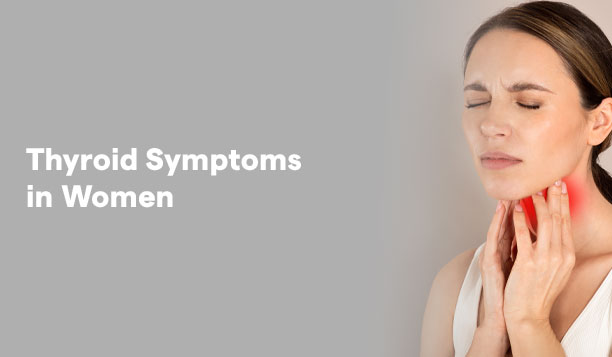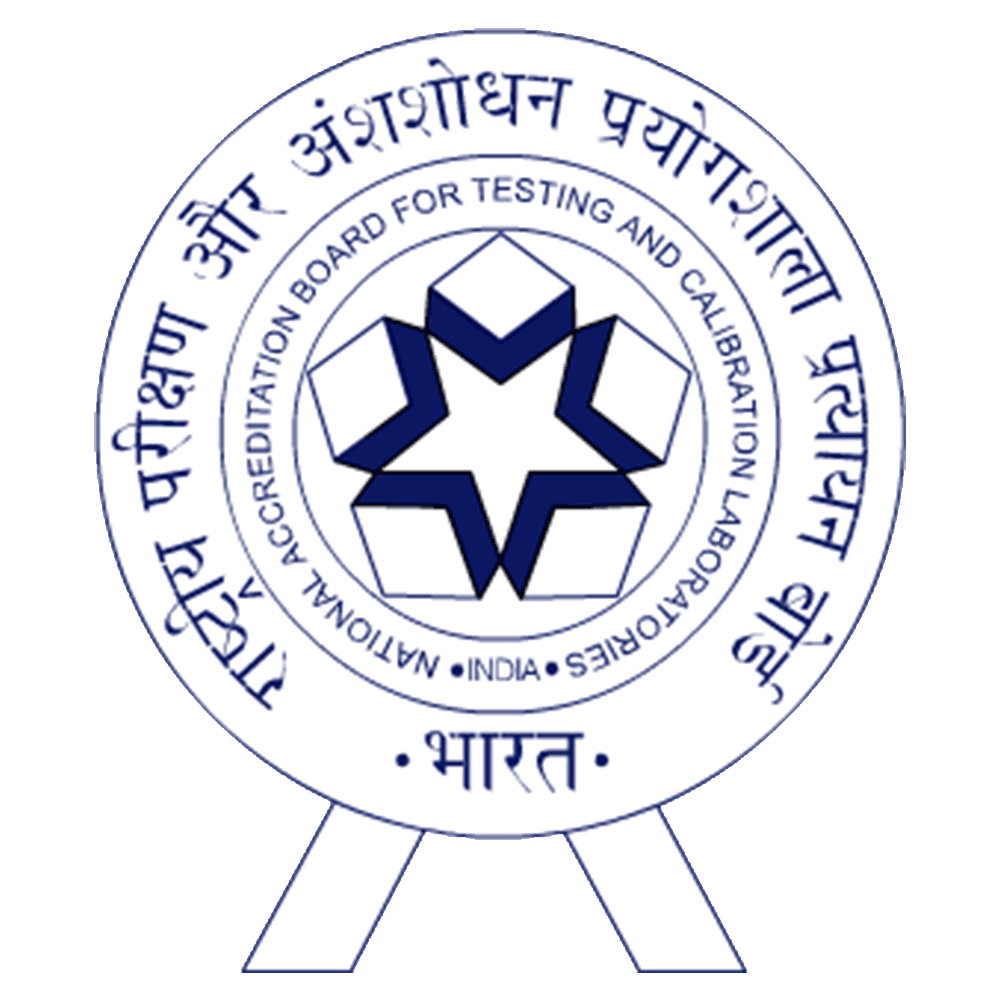As cited in the report of NFHS IV (2015-2016), it was concluded that women between the age group of 15-49 years are at more potential risk of suffering from thyroid-related disorders. These disorders are well known to affect females more than males with a ratio of around 10: 1.
But before dwelling into the details of the symptoms of thyroid-related disorders it is necessary to explore the details about the thyroid gland. The thyroid gland is a butterfly-shaped organ which is located in the neck, and its principal functions include; controlling the metabolic processes in the body and energy levels.
There are two major thyroid gland-related disorders namely hypothyroidism, also referred to as underactive thyroid, a disorder where the thyroid gland doesn't produce enough thyroid hormone, resulting in a slower metabolism, and hyperthyroidism also known as overactive thyroid, where the thyroid gland produces too much thyroid hormone, resulting in a faster metabolism. Because the thyroid affects almost every organ in the body, it is not surprising that hypothyroidism and hyperthyroidism can present an astonishing number of symptoms that may affect a woman’s lifestyle to an extreme extent.
Hypothyroidism & Its Symptoms
Effects of Hypothyroidism are seen in women of every age group depending upon the functioning of the thyroid gland, the strength of their immunity system, and many more factors. Some of the common symptoms that could prove beneficial in the identification of Hypothyroidism in women are:
- Fatigue and weakness- It is one of the most common symptoms of hypothyroidism, if you are experiencing any signs of fatigue that last for quite some time even when you get enough sleep, it must ring some bells considering your health.
- Weight gain: Women experiencing sudden and unexplained weight gain is a clear sign of hypothyroidism.
- Dry skin and brittle nails: The skin of the women suffering from hypothyroidism may appear to be scaly and dry while nails may become brittle and easily break.
- Depression and mood changes: Ladies may develop signs of sadness, and irritability, or could feel anxious frequently.
- Irregular or heavy menstrual periods: Hypothyroidism threatens to cause a change in the menstrual cycle and women might experience noticeably tender flow.
- Constipation: Hypothyroidism causes the glycemic level in the body to rise slowly so that it becomes difficult to defecate hence, can lead to persistent constipation.
- Muscle aches and joint pain: Muscle weakness that is distributed in all parts of the body and joint stiffness are understandable symptomatic indications of hypothyroidism.
- Memory problems: It may also be characterized by the inability to concentrate and forgetfulness.
- Eating Habits: Women might experience a sudden shift in their food preferences which is also an indicator of this disorder.
- Difficulty Losing Weight: Women with hypothyroidism face the most irritating consequence of hypothyroidism which is the difficulty in losing weight. Women are very much body-conscious these days and their inability to lose weight makes them vulnerable and self-conscious.
Hyperthyroidism & Its Symptoms
Detection and treatment of hyperthyroidism hold utmost importance as, if this disorder is left untreated it could lead to severe health adversities in women including heart problems, infertility issues, abnormal menstrual cycle, and even weak bones and muscles. Some of the common symptoms that could prove beneficial in the identification of Hyperthyroidism in women are:
- Nervousness and Anxiety: Women with hyperthyroidism might feel nervous, and fidgety, or can even have repetitive episodes of panic attacks.
- Rapid heartbeat: Palpitations i.e., increased rate of heartbeats (tachycardia) could be a clear indicator for women going through hyperthyroidism.
- Unexplained weight loss: As such, it is not unusual for women to lose weight rapidly even if they have a normal or an increased appetite but a sudden weight loss might be a present sign of hyperthyroidism.
- Heat intolerance: Women with hyperthyroidism are not at all able to tolerate high levels of heat which leads to higher sweating rates, irritability, and restlessness.
- Tremors: Tremors of the fingers and hands are usually apparent symptoms of hyperthyroidism.
- Sleep disturbances: Most people suffer from either the inability to sleep or remain asleep all through the night.
- Fatigue: However, there are moments when women feel that there is a lot of energy, but at the same time, chronic fatigue prevails in women suffering from hyperthyroidism.
- Menstrual changes: The regularity of the menstrual cycle is disturbed or the periods are less frequent than what is considered normal in women suffering from hyperthyroidism.
- Eye problems: In some cases, the eye may become protruding as seen in Graves’ disease, with women suffering from hyperthyroidism.
Effects of Thyroid in Different Stages in Women
It's important to note that thyroid disorders can also manifest differently during various life stages for women:
- Puberty: Abnormal thyroid activity can cause early or late puberty among children depending on several other factors.
- Pregnancy: Hypothyroidism particularly in pregnancy might lead to certain complications such as miscarriage, preterm labor, and developmental issues of the baby. Some of the symptoms may present themselves like some of the physiological changes that occur during pregnancy hence complicating the diagnosis.
- Postpartum: Most women get postpartum thyroiditis which makes the thyroid gland either hyperactive or hypoactive for some months after childbirth.
- Perimenopause and Menopause: The signs of thyroid disorder may present with the signs of the menopausal period and, therefore can cause a delay in diagnosis or even non-diagnosis at all.
However, this is not all, thyroid disorders could well manifest like other conditions or life alterations hence, in this case, diagnosis takes center stage. For instance, the signs of hypothyroidism are sometimes similar to the signs of depression; while hyperthyroidism can be diagnosed as an anxiety disorder as well as any other mental disorder.
Since the ways the thyroid disorder affects women are numerous and sometimes not very vivid, many can have a thyroid disorder without even knowing it. The knowledge of these symptoms is important because, if one knows his/her body well, she or he will be able to notice changes early enough after visiting a doctor.
In case a woman has unexplainable symptoms or talks of dramatic changes in her health, then she has to see a doctor, at the earliest convenience possible from the best endocrinology hospital in Delhi.
Diagnosis usually requires a physical examination and blood tests such as (TSH, T3, and T4) and sometimes ultrasound is also used as a method of diagnosis. Depending on the particular type of the disease the patient could be prescribed medications for the hypothyroidism or anti-thyroid preparations combined with radioactive iodine therapy and surgery for hyperthyroidism.
To sum up, thyroid disease, being a non-orthopedic musculoskeletal disease, affects a woman’s health and well-being dramatically. The symptoms of the disorder are manifold and could be present in almost any system of the human body. Therefore, by being conscious of such signal indicators and getting medical attention, women will be able to receive correct diagnoses and treatment that will enhance their well-being and general health. To know more, book an appointment at Sir Ganga Ram Hospital today.



